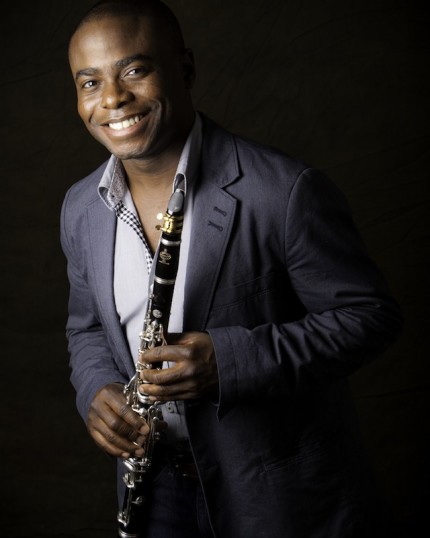Musicians from Marlboro proves golden in anniversary season

The most visible benefits of summer festivals may be public performances, but the best among them are equally accomplished in their tutelary mission, with teaching, master classes and rehearsal opportunities with major artists that are essential for training the next generation of chamber musicians.
Few in the U.S. have been at it as long or as well as the Marlboro Music Festival. The Vermont festival is currently marking the 50th anniversary of its touring wing, Musicians from Marlboro, and Friday night at Mandel Hall that ensemble showcased the Marlboro lineage and cross-generational artistry most impressively.
The concert, presented in the University of Chicago Presents series, led off with Beethoven’s String Trio in C minor. The composer felt his early Op. 9 trios constituted his finest work to date, and in the third of the set, one senses the composer finding his singular voice, the mercurial music pointing the way forward to Beethoven’s probing string quartets to come.
Cellist Marcy Rosen, the veteran of this tour’s lineup, made a fine partner for her younger colleagues, violinist David McCarroll and violist Daniel Kim. The players displayed tight and enviable ensemble, putting across the restless urgency as well as effectively mining the deeper vein of expression in the Adagio and the quirky dance-like rhythms of the Scherzo. The young Beethoven shows his subversive cards with his wry coda, ideally rendered by the players in casual, throwaway fashion.
The rest of the program benefited from the participation of Anthony McGill, principal clarinetist of the New York Philharmonic. Born in Chicago, McGill was appointed to the Philharmonic in 2014 after serving in the same position with the Metropolitan Opera.
In his user-friendly introduction to Krzysztof Penderecki’s Clarinet Quartet (1993), McGill spoke of the great pleasure he and his colleagues shared working on this “unique and very special” music at Marlboro with the Polish composer. That connection was manifest in the concentrated, prismatic performance that followed, with McGill joined by violinist Emilie-Anne Gendron, Kim and Rosen.
Though spanning barely 15 minutes in four elliptical movements, Penderecki’s somber quartet plumbs a striking degree of emotional depth. A clarinet solo opens the Notturno first movement, musing darkly before segueing into a disconsolate conversation with viola. The Scherzo (Vivacissimo) provides immediate contrast with fast, violently driving strings set against jaggedly sardonic clarinet commentary. The quartet segues without pause into the brief, ironically named Serenade with its hard string pizzicatos and sudden clarinet bursts.
The predominant foreboding becomes fully tragic in the finale, titled “Abschied” (farewell). Here the sense of bleak desolation is overwhelming in slow, static music, motionless at times as if too numbed by pain to move. A dirge-like clarinet solo floats above a drone cello and a searching violin cadenza strains higher as if looking unsuccessfully for a means of escape from this stark, barren landscape. All efforts futile, Penderecki’s quartet closes on a coda of spent resignation.
The musicians provided taut and sterling advocacy for this compact yet powerful music. McGill’s seamless fluency and plangent tone were especially inspired along with Gendron’s sensitive violin work.
All five musicians were on stage—McCarroll in the first violin chair—for the final work, Brahms’ not unfamiliar Clarinet Quintet.
McGill recorded both the Mozart and Brahms quintets with the Pacifica Quartet in 2014—and performed both works with Pacifica on the UC Presents series— and that Cedille recording remains among the finest available of either work.
Friday’s companionable performance was different–more robust and with somewhat less refined and blended string tone. Yet with McGill as primus inter pares, it yet brought rich and substantial rewards.
The clarinetist’s oaky, burnished tone and understated virtuosity fit Brahms’ late, reflective quintet like a perfectly tailored glove. McGill and colleagues put across the Adagio’s relaxed lyricism ideally as well as the bluff, more assertive passages, McGill’s gypsy breakouts rich in flavor yet kept in scale.
The sensitive playing and teamwork by all the musicians alertly underlined the dynamic contrasts and subtly calibrated emotional shifts— even the brief moment in the bucolic final variations when Brahms’ contented rumination momentarily tips over into existential unease.
Even the clangorous cell phone ring of a clueless audience member immediately after the hushed final chord wasn’t enough to spoil the serene glow of this wonderful Brahms performance.
The University of Chicago Presents series features Third Coast Percussion 7:30 p.m. February 5 at International House. The program includes Thierry De Mey’s Table Music, Donnacha Dennehy’s Surface Tension and Steve Reich’s Sextet. chicagopresents.uchicago.edu; 773-702-8068
Anthony McGill performs the Chicago premiere of Geoffrey Gordon’s Clarinet Quintet with the JACK Quartet 2 p.m. March 6 at Ganz Hall. The American Music Project concert also includes Earle Brown’s String Quartet, John Cage’s Quartet in Four Parts, and John Luther Adams’ The Wind in High Places. americanmusicproject.net; eventbrite.com.
Posted in Performances


Posted Jan 24, 2016 at 11:54 am by Odradek
I am glad to see the Penderecki Quartet getting some live action. Penderecki’s chamber music has always struck me as consistently better than his work in other forms. Dare we hope that his magnificent Sextet will get a local outing soon?